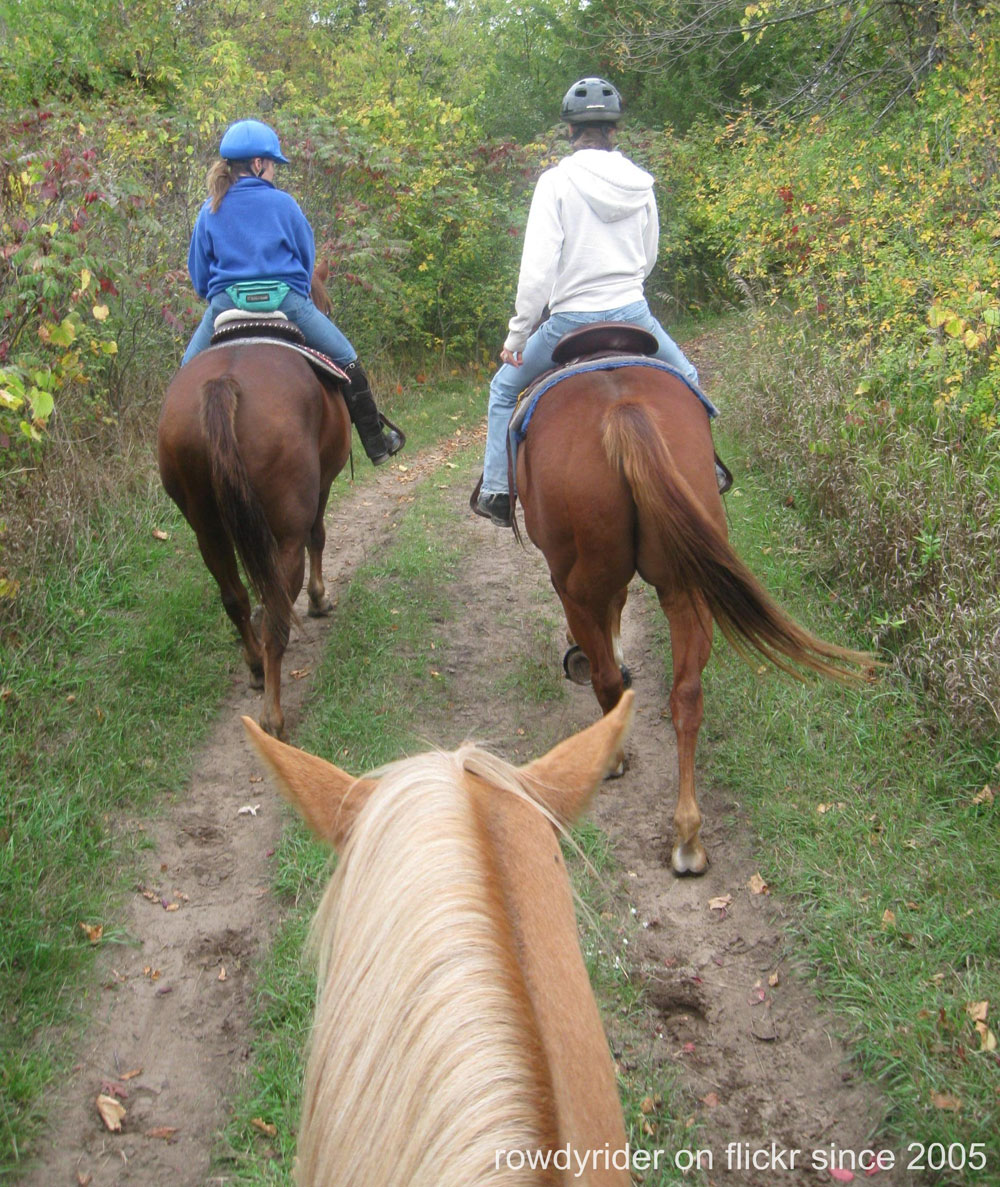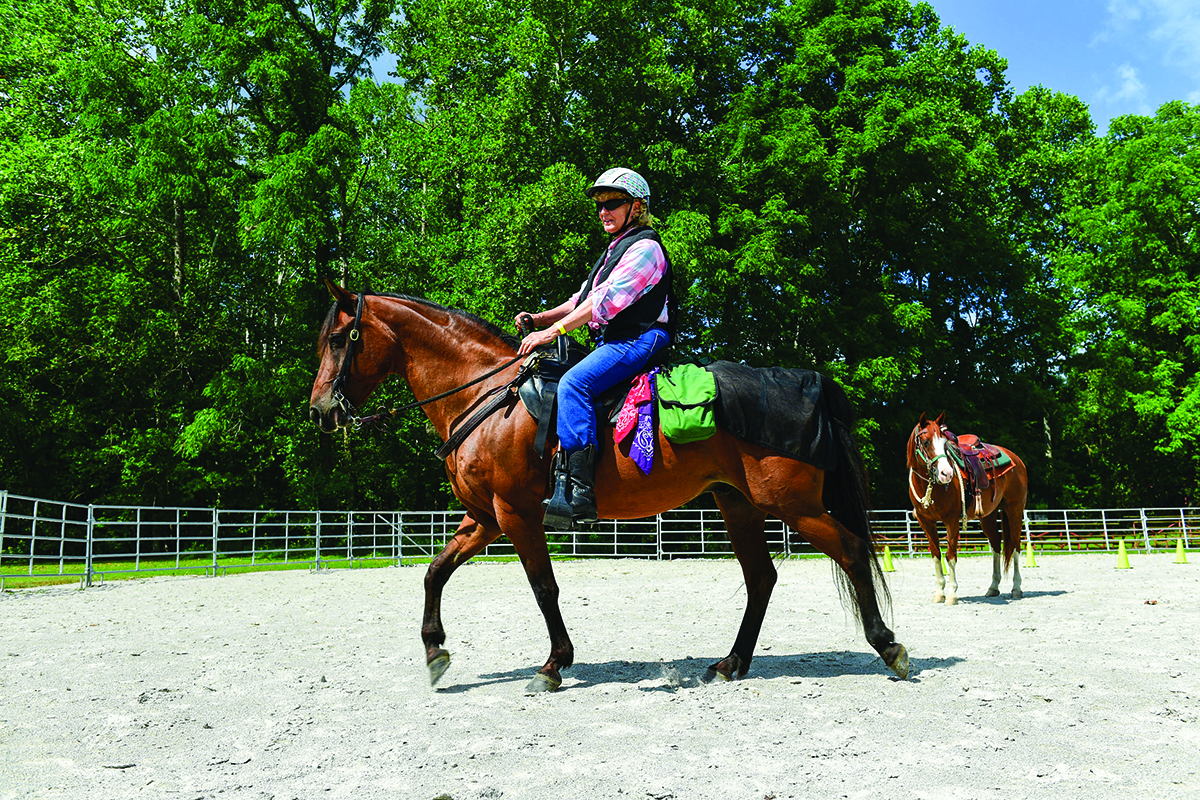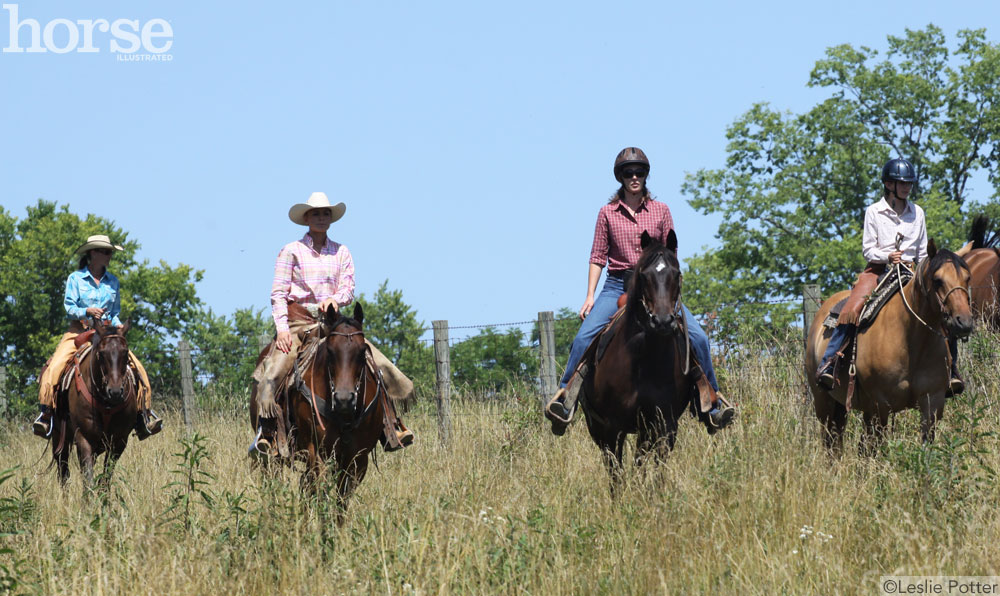Q: I want to trail ride, so my husband bought me a six-year-old mare. For the most part, she seems broke and quiet. The problem is that she goes great for my husband, but when I ride her she acts nervous and refuses to go where I want. That ends up making me feel nervous. I had a horse when I was young, but it seems like everything I knew about riding doesn’t work with this mare. What can I do?

Q: As both a riding instructor and horse show coach I’ve worked with numerous “re-riders” like you. Re-riders are adults who rode in their youth, then took a hiatus for things like college, work and family, and have now returned to their earlier passion.
Most re-riders face challenges just like you. Though you have fond memories of riding when you were young, years—even decades—out of the saddle take their toll. Besides the normal wear and tear on your body, growing older diminishes the carefree, risk-taking spirit that’s the hallmark of youth. It’s understandable why you feel nervous when your mare acts up. You’re mature enough to realize the potential consequences of being aboard a horse you can’t control. Fortunately, I have a few suggestions for you.
First, truly analyze if this mare is the right horse for you at this stage of your life. You mention that she’s well-behaved “for the most part” which makes me think she occasionally demonstrates a tendency to spook or balk. That could indicate she needs further training with an experienced rider.
Next, green and sensitive horses can feel insecure in an unfamiliar environment. They become agitated and test the fortitude of their riders by refusing to go any place that seems unpleasant. These horses need to be directed by a rider who sits erect in the saddle with light contact on the reins and relaxed yet consistent leg pressure. This confident demeanor gains the respect and trust of a nervous horse. Whether your husband’s riding skills are less rusty than yours or he simply conveys a more commanding presence in the saddle, he has a connection to your mare. Observe how he interacts with her.
Finally, re-examine your own horsemanship skills. Be fair yet honest with yourself. It may be time for a refresher course on the basics. Without realizing it, you may be enabling your mare’s behavior. Common bad habits are tipping forward with your upper body, allowing your heels to slip upward (thereby weakening your leg) and holding too tightly on the reins. This self-protection mode is common among re-riders, and unfortunately it conveys a sense of weakness to the horse.
I encourage you to seek out another “mature” horsewoman, someone with decades of experience, who can provide some low-stress mentoring as you return to riding. As you gain confidence in your abilities you’ll become less nervous… and so will your mare.





That is good advise.
Wow, this was exactly my problem! Fortunately, I DID get advice from a more experienced “mature” horseperson, and now my mare and I get along fine. Also, i took advice from an executive at Google: What would you do if you had no fear? It changed my whole riding outlook.
If you need to build up confidence again, get a pony. It really helped me after I had a fall with my horse because the pony I rode was wild, but he was short so I wasn’t afraid to fall.
Doesn’t make sense to buy a 6 year old– still a bit young would have bought something more 13 ish. And a pony is a good idea too. Lessons would be helpful.